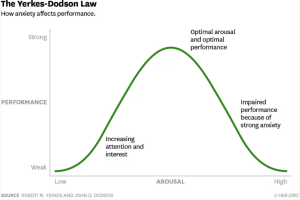I’m not a die-hard Arnold Schwarzenegger fan, but I can’t deny the guy’s fascinating evolution—from bodybuilding legend to Hollywood superstar, to governor, and now wellness advocate. His Pump Club newsletter is where I found myself intrigued lately. It’s not just another fitness blog; it’s a well-curated, no-fluff guide to health, presented in a digestible and inspiring way.
I want to share five standout insights from the recurring weekly newsletter that left me thinking differently.
Green Tea vs. Ozempic: Don’t Believe the Hype
One claim making the rounds is that green tea is a “natural Ozempic.” The reality? That’s a fallacy. Ozempic, a pharmaceutical drug, works by targeting GLP-1, a hormone responsible for controlling appetite and blood sugar. While green tea does contain antioxidants and bioactive compounds, its impact on GLP-1 is negligible compared to Ozempic.
The studies show that at best, green tea may help you lose a couple of pounds over several months. Meanwhile, Ozempic helps some users lose up to 20% of their body weight. Ozempic can provide rapid results by significantly reducing appetite, but it doesn’t address the root causes of unhealthy eating habits.
In contrast, incorporating green tea into a balanced diet may take longer—perhaps several months to see noticeable weight loss—but it encourages sustainable, healthy habits over time. By focusing on gradual lifestyle changes, green tea supports long-term health benefits without the potential side effects associated with pharmaceuticals.
This isn’t to dismiss green tea—it’s great for overall health. But as a weight-loss tool? Manage your expectations.
Original Article Post: Does Green Tea Work Like Ozempic?
How To Get In Your Flow State: The Yerkes-Dodson Law
Do you ever feel that you are trying too hard, only for your performance to worsen? There is a psychological explanation explaining this phenomenon. It states that optimal performance happens when you’re under moderate stress—not too relaxed, not too overwhelmed. This applies to everything, from playing sports to brainstorming ideas.

Schwarzenegger’s newsletter provides effective tips to find one’s “flow,” for instance, batching tasks to build momentum and pairing challenges with rewards. What stands out to me was the reminder that small adjustments can significantly enhance and unlock major results—this isn’t about perfection but progress. A change in scenery can be imperative and result in fortunate outcomes.
Original Article Post: How To Find Your Flow State
Coffee vs. Energy Drinks: The Real Buzz
Energy drinks are marketed as the ultimate performance boosters, but here’s the kicker: most of their effectiveness boils down to plain old caffeine. Researchers compared energy drinks with additional ingredients like L-theanine and Alpha GPC to coffee with an equivalent caffeine dose. The result? No difference in focus, mood, or performance.
It’s refreshing to see this myth debunked. Energy drinks are often expensive, packed with sugar, and loaded with unnecessary additives. Stick to coffee or tea—you’ll save money and avoid unnecessary chemicals. This is why Pump Club stands out: it cuts through the marketing spin and gives you the facts.
Original Article Post: What Energy Drinks Don’t Want You To Know
Muscle Confusion Isn’t What You Think
If you’ve ever thought you needed to constantly switch up your workouts to “confuse” your muscles, think again. A recent study confirmed that consistent overload—progressively challenging your muscles—trumps the idea of constant variety. In the study, participants who stuck to just two exercises (leg presses and deadlifts) gained as much strength and muscle as those doing varied routines.
That doesn’t mean variety is useless—it can help mentally by keeping things fresh. But the takeaway is clear: you don’t need to overcomplicate things. Simple, focused progress is often the most effective approach. This feels like classic Arnold advice: grounded, practical, and results-oriented.
Original Article Post: Muscle Confusion Is Not What You’ve Been Told
The 4-Year Relationship Test: Fitness and Commitment
Relationships change us in ways we don’t always notice, including how we approach fitness. Studies show that people in romantic relationships tend to be less active than singles, especially when it comes to intense workouts. The reasons are subtle: we prioritize shared activities (like sedentary bonding) over personal fitness goals.
That said, couples who engage in joint physical activities like hiking or walking see benefits. The newsletter also mentions the “4-year test,” where couples often experience significant weight gain after four years of stability. This insight isn’t about blaming relationships but about being mindful of how our habits shift over time. Arnold’s team encourages small but consistent efforts to counteract this trend—another reason I respect their approach.
Original Article Post: Do Relationships Make You Less Fit?
Final Thoughts— Health is Your World
Arnold’s Pump Club embodies the idea that health is not about extremes but about consistent, informed choices. These studies and insights are thought-provoking—they challenge biases, correct misconceptions, and promote actionable change. For those looking to take ownership of their well-being, this newsletter is a credible and empowering resource.
These insights might seem simple, but they’re powerful reminders to approach health with curiosity and intention. It’s not about doing everything perfectly but about making informed choices that work for you. The World Is Yours—as the Pump Club reminds us—and your health is the foundation.


























